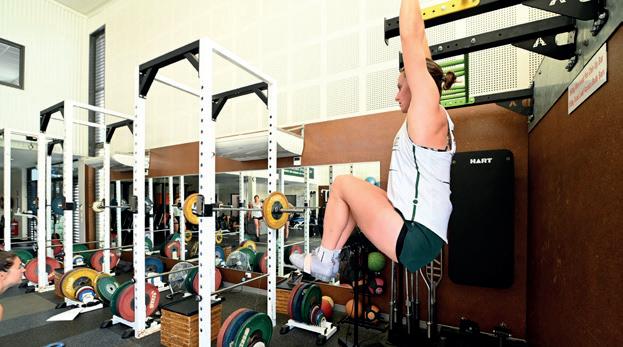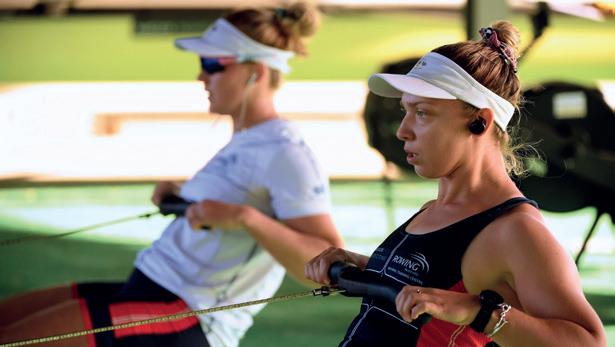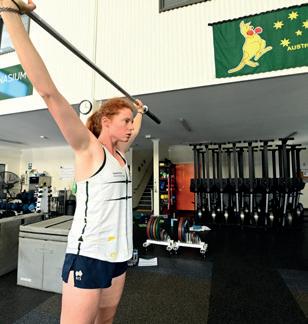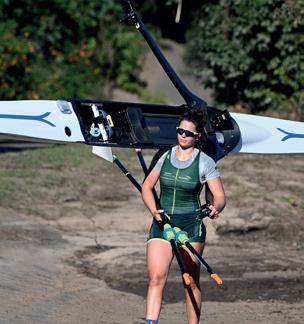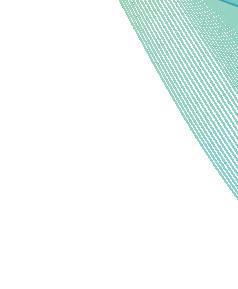
5 minute read
Athletes’ Commission Report

DAVID CRAWSHAY OAM
Advertisement
Chair - Rowing Australia Athletes’ Commission
2 GOLD
1 SILVER
2 BRONZE What a difference a year makes! I wrote in the pages of last year’s Annual Report about the challenges faced by athletes in light of the ongoing COVID-19 pandemic. At that point, the Tokyo Olympic and Paralympic Games were yet to be contested and there was a palpable sense of trepidation as Australian rowing dipped its toe into the water after a year of no international racing.
However, as we sit here 12 months later, I am not sure anyone could have predicted just what would eventually happen.
Over two weeks in July and August 2021, athletes from around the world descended on the Tokyo Sea Forest Waterway for the Olympic and Paralympic Regattas to compete at what are the pinnacle events for our sport.
In the now-famous “hour of power” on the sixth day of the Olympic Regatta on 28 August 2021, Australians saw four crews come away with Olympic Medals – the Women’s Four with an historic Gold Medal; the Men’s Four who took back Gold for Australia in this boat class after having been denied by Great Britain in the last five Olympics; the Women’s Quadruple Sculls overcoming challenging conditions to record a stunning Bronze Medal and the Men’s Quadruple Sculls who matched their female counterparts by rowing a strong race to come away with a Bronze Medal.
Moreover, at the Paralympic Rowing Regatta, we saw Erik Horrie OAM come away with a third Paralympic Medal – an unbelievable effort and just reward for his efforts.
Other crews saw some solid performances in what were very hotly contested events.
The Olympics and Paralympics came at an important time in the life of Australia, with much of this country locked down. Hopes were lifted and spirits were buoyed. The similar time zones and favourable scheduling meant that rowing was accessible to everyday Australians in a way that it had never been. The tight and sometimes unpredictable racing made for exciting viewing.
The Rowing Australia Athletes’ Commission (RAAC) represents the interests of Australia’s elite athletes to the RA Board, executive and high performance. The RAAC is a collection of athletes from the athlete leadership groups of the Men’s National Training Centre (NTC), Women’s NTC and the para-rowing group, as well as several recently retired rowers. The athlete leadership groups are fundamental
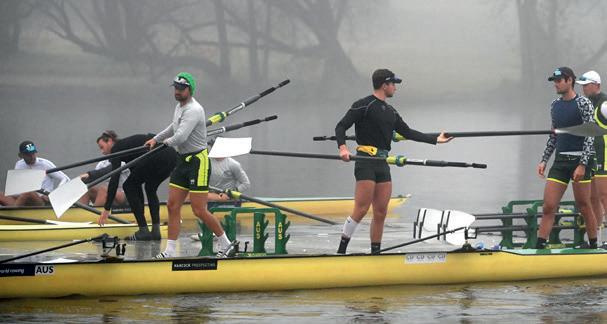

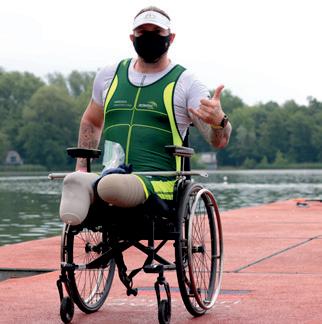
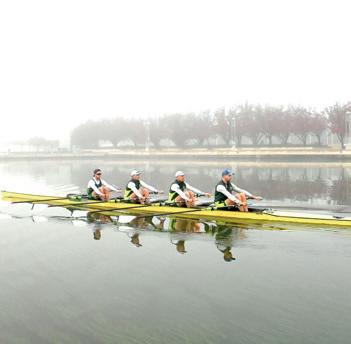
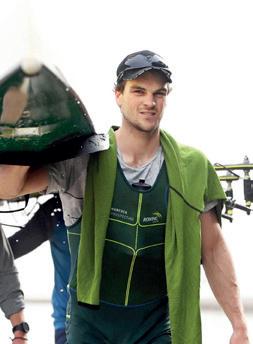

in enabling smooth operations in the daily training environment through more open and timely communication. Communication, or lack of it, is invariably at the centre of many issues we face in rowing and elite sport in general.
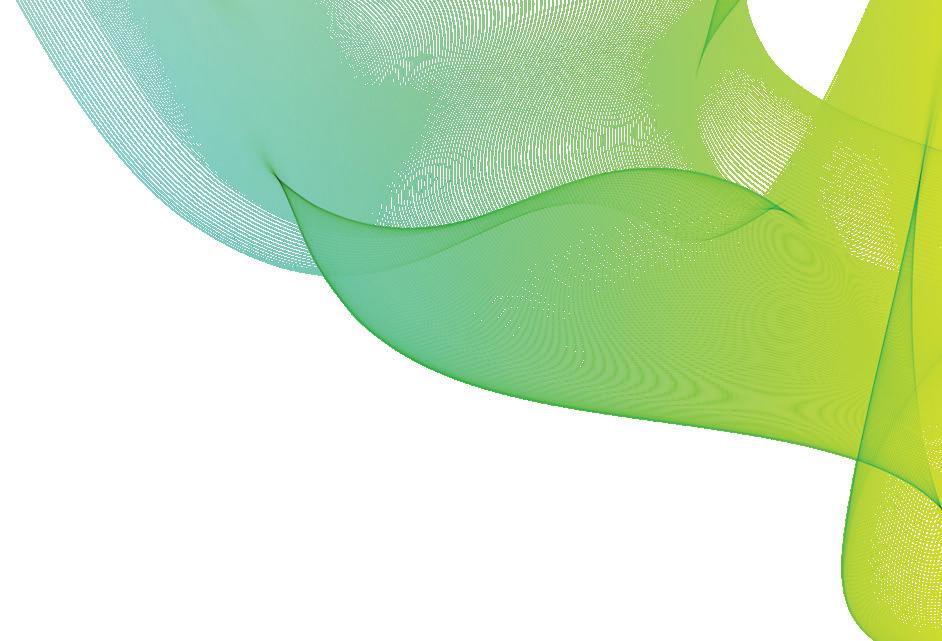
This last year saw reviews conducted into the three programs – men’s, women’s and para – by Gold Medallist Scott Brennan OAM and Lt Col Benjamin Watson. Renowned canoe slalom coach Richard Fox MBE was called upon to assist with the men’s and women’s reviews and long-time para-cycling coach Peter Day supported Scott and Ben with the review into para-rowing. These reviews went a long way to identifying the challenges we face as a rowing nation and the improvements that need to be made. One of these challenges is the ability for athletes at the NTCs to pursue meaningful study and career options during their time training for rowing. Athletes already sacrifice enough without having to forego opportunities in these areas. Coaches and administrators should not view an athlete’s capacity to study and work as competing with their ability to train. When managed and executed well, these two areas complement each other and allow for an athlete’s longevity in the sport. In contrast, a challenge that confronts the para-group (and the PR3 group in particular given their size) remains the ability to incorporate more opportunities to come together and more volume of training. This is a good challenge, and one that acknowledges the benefits that come from having a more structured program. The international season is almost upon us and it is great that RA is looking to send Senior, Under-23, Under-21 and Under-19 teams overseas to train and compete. For the younger cohorts, this is an opportunity that was denied in 2020 and 2021 due to safety and logistical reasons. The experience that comes from international racing is crucial to the development of top-quality athletes. Every opportunity should be relished.
I would like to thank Bernard Savage, the outgoing Performance Director, for all of his efforts in 2021. Bernard worked hard to drive the necessary shifts in the culture of the NTCs to embed athlete welfare, all while overseeing the logistical operations leading into and after the Tokyo Olympics and Paralympics – no mean feat. I would also like to thank Paul Thompson MBE, who took over the role in December 2021. Paul comes into the job as one of the world’s best coaches and we benefit from his experience and especially his technical insight. He has already shown a willingness to engage with the athlete leadership groups which is appreciated. My thanks also go to the Coaches – John
Keogh, Ellen Randell, Tom Westgarth, Ian Wright, Dr Andrew Randell, Mark Prater, Rhett Ayliffe, Lyall McCarthy
OAM, Gordon Marcks, Jason Baker and Renae Domaschenz – and the support staff across the programs. These are tough roles with long hours that require much patience. This year marks a return to “businessas-usual” as athletes knuckle down for a reduced three-year runway into Paris 2024. I want to take this opportunity to wish athletes all the best of racing on behalf of the RAAC.

